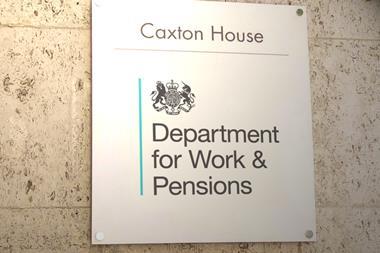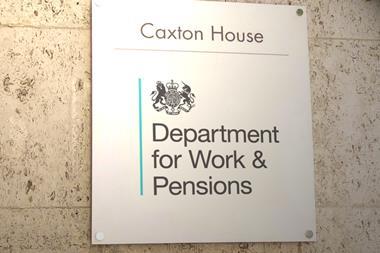The UK’s Department for Work and Pensions (DWP) has launched a consultation seeking industry views on draft regulations and guidance on the exemption of performance-based fees from the regulatory charge cap proposals designed to stimulate illiquid investment by occupational defined contribution (DC) pension schemes.
In the consultation Broadening the investment opportunities of defined contribution pension schemes – which runs between 6 October and 10 November 2022 – the UK government also published a response to its consultation on Facilitating investment in illiquid assets it ran in March.
”Enabling our occupational schemes to take advantage of long-term illiquid investment is one of this government’s key priorities,” said Chloe Smith, secretary of state for DWP, and Alex Burghart, parliament under secretary, in the DWP’s response.
With more members enrolling in DC schemes thanks to automatic enrolment, with the scale of assets invested in DC expected to double by 2030, according to the department, and the emergence of collective money purchase (CMP) schemes this year, trustees and managers are increasingly considering investments in a broader range of assets as part of a diversified portfolio.
This includes in start-up companies, renewable projects and infrastructure that can offer potentially greater returns for pension savers building towards retirement and can have the added benefits of improving the UK economy and society, the duo explained.
”Industry insight up to this point has been essential, and we welcome the broad support and constructive feedback we have received to the proposal to require schemes to state their policy on illiquid investment and to disclose their asset allocations. We are now inviting views on draft regulations and statutory guidance which seek to deliver this proposed policy. The direction is set, and we intend to legislate by spring 2023,” they continued.
The draft regulations also include the proposed measure to enable trustees to exempt performance-based fees from their charge cap calculations where they feel this in their members best interests.
“Whilst we realise performance fees and their relation to the charge cap is not the sole challenge that DC and CMP schemes may face when looking to invest in certain illiquid asset classes, it does remove a potential barrier. Removal has the capability to help facilitate greater levels of investment in private markets, which may not have been previously considered,” Smith and Burghart said.
The performance-based fee measure removes a barrier for trustees when considering whether or not to incur performance-based fees, if they believe the investment provides value for their members. It is intended to provide an opportunity for fund managers and DC schemes to work together to ensure investment products work, and in equal measure protect, the interests of members.
”We have listened to industry and refined our policy in light of the feedback we received. We want to ensure that the regulatory burden is reasonable and proportionate whilst still retaining the wider benefits that changes in this area could bring,” said Smith and Burghart.
The proposed measures emphasise the key role that trustees of DC and CMP schemes, and their advisers, have in ensuring the impact of different investment arrangements on long-term outcomes are appropriately considered. The role which illiquid assets could play in improving pension outcomes for members should not be overlooked, they added.
Not enough
Callum Stewart, head of DC investment at Hymans Robertson, was pleased to see the government’s ongoing focus on facilitating investment from DC schemes in a wider universe of opportunities including illiquid assets, particularly regarding trustees being required to put in place formal policies on illiquid assets in their statements of investment principles.
“However that is not enough and we are very disappointed in the lack of focus on materially moving the dial away from emphasis on cost and governance reporting requirements that add little value, to wider value and opportunity,” he said.
“As an industry we will fail DC savers if we don’t focus on areas that can really move the dial in terms of members’ retirement outcomes. Requiring reporting on asset allocation including illiquid assets in the annual chair’s statement will, in our view, add further costs and pressure on trustees, detracting from a focus on bigger picture areas that can really improve these outcomes,” Stewart added.
He said this would perpetuate the current over-emphasis on minutiae detail versus bigger picture areas.
“When we responded to the original consultation, we highlighted the overlap in reporting requirements for the implementation statement which will provide transparency on how policies with regard to illiquid assets are being put into practice. It’s disappointing that this has not been addressed in the response, and trustees will have overlapping reporting requirements going forward,” he said.
Read the digital edition of IPE’s latest magazine

















